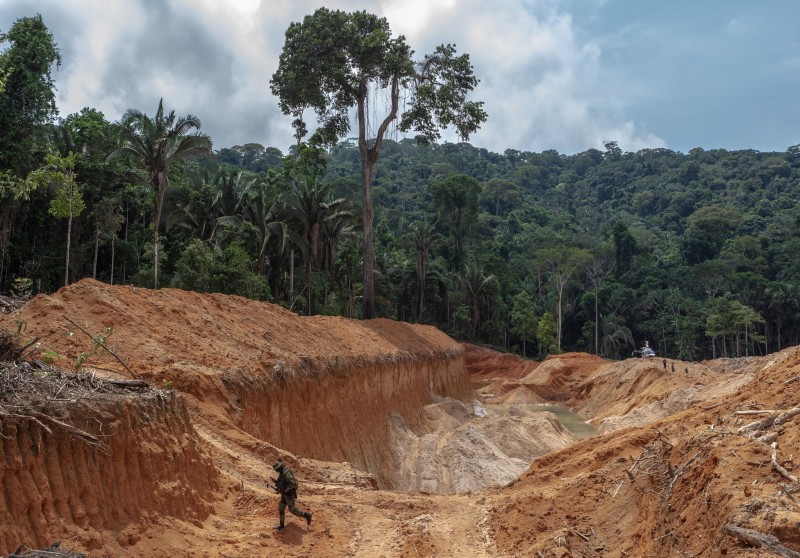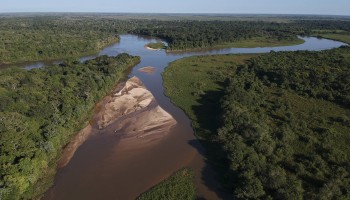Reported by
Brazil’s Federal Prosecutor’s Office has filed a lawsuit seeking to block a $180 million carbon credit agreement between the Amazonian state of Pará and an international climate finance group, arguing that the state failed to properly consult Indigenous and traditional communities whose lands underpin the deal.
The complaint, filed this week, asks a federal court to cancel the 2024 agreement signed with the LEAF Coalition, a public-private partnership that pools funding from the United States, United Kingdom, Norway, and South Korea as well as dozens of multinational corporations, including Amazon, Bayer or the Walmart Foundation. The coalition pays jurisdictions in the Global South for measurable reductions in deforestation.
Carbon credits function as tradable permits that allow companies to emit a certain amount of carbon dioxide or other greenhouse gases. Each credit typically represents one metric ton of emissions that is either released into the atmosphere or offset through environmental actions such as forest preservation. The money paid for these credits is meant to support environmental protection—in this case, conserving the Amazon rainforest.
But federal prosecutors argue that the Pará government prematurely agreed to sell credits that do not yet exist and failed to obtain the “free, prior and informed consent” of the communities most affected—a requirement under Brazilian law.
Pará, home to nearly a quarter of Brazil’s Amazon territory, signed the agreement with LEAF during New York Climate Week in September 2024, committing to sell future so-called REDD+ carbon credits at $15 per ton—an amount the state touted as unprecedented for a sub-national government in Brazil.
Reducing Emissions from Deforestation and Forest Degradation, or REDD+ credits, are generated from projects that prevent deforestation or promote forest conservation in developing countries.
“The deal represents a premature sale,” said federal prosecutor Felipe de Moura Palha, one of the lawsuit’s signatories. “It has created real problems in communities, who are being pressured to approve and adopt a system without adequate time to understand its implications or deliberate according to their own customs and norms.”
The lawsuit contends the contract violates the law, which prohibits the advance sale of credits not yet generated. Prosecutors also object to a clause requiring the state to compensate LEAF’s buyers if the deal is later invalidated by Brazilian authorities—potentially exposing taxpayers, or even the communities themselves, to financial liability.
The rush to close the deal, prosecutors argue, is part of a broader effort by state officials to demonstrate climate action results ahead of COP30, the global climate summit set to be hosted in Belém, Pará’s capital, in November 2025.
Leaders from Indigenous communities say they were not properly consulted about the agreement.
“They are selling our air, our lives, without even consulting us,” said Alessandra Korap, a leader of the Munduruku people and coordinator of the Pariri Indigenous Association. “And from there comes the colonization of our minds—because while I want to work collectively, money comes in to divide us. Some will want it, others won’t accept it.”
Ms. Korap also raised questions about whether funds from the deal would benefit the communities at all. “There’s drought, hunger, fires, violence, drug trafficking, mercury contamination, illegal mining, deforestation. So how is the government going to handle public policy? Will it actually give the money to the communities?” she asked.
Prosecutors are asking the court not only to void the LEAF agreement, but also to impose 200 million reais (roughly $35 million) in collective moral damages on the state for marketing environmental assets tied to traditional territories without proper consultation.
“The state is committing to reimbursing investors with public funds—or in the worst-case scenario, passing those losses on to the communities - the rightful holders of these assets,” Palha said.






